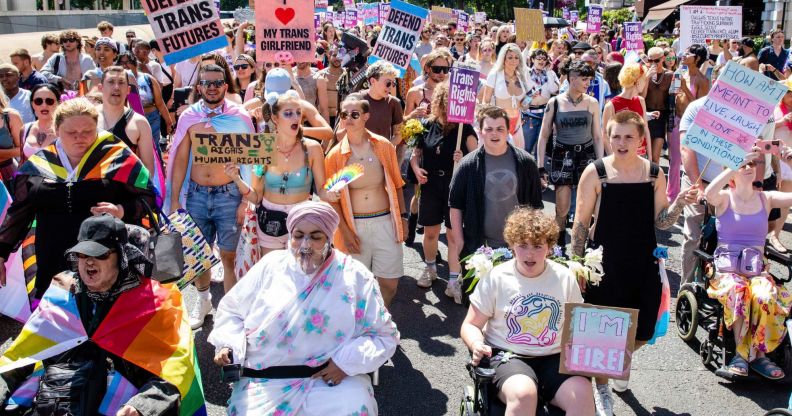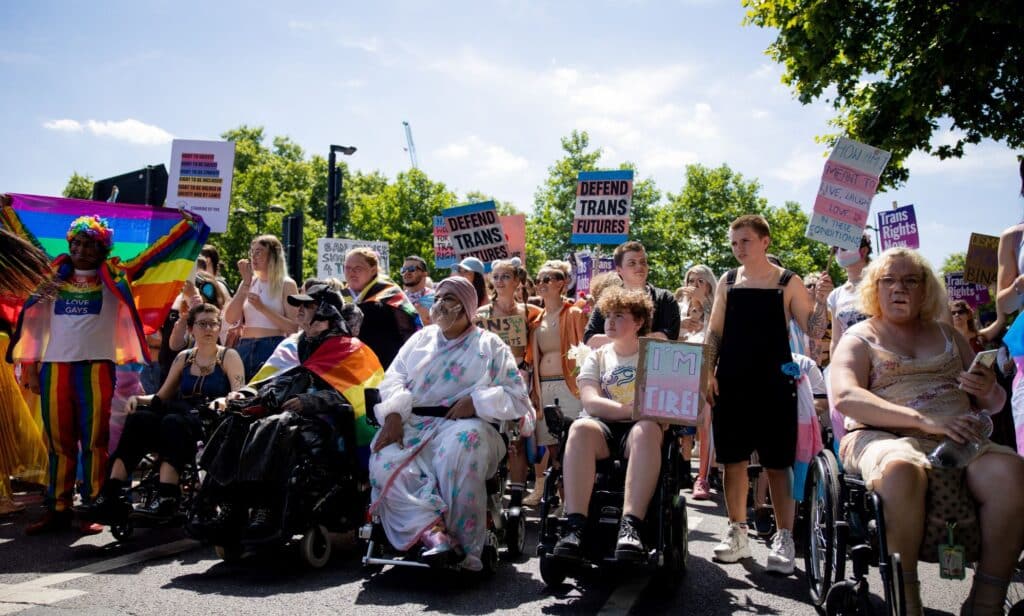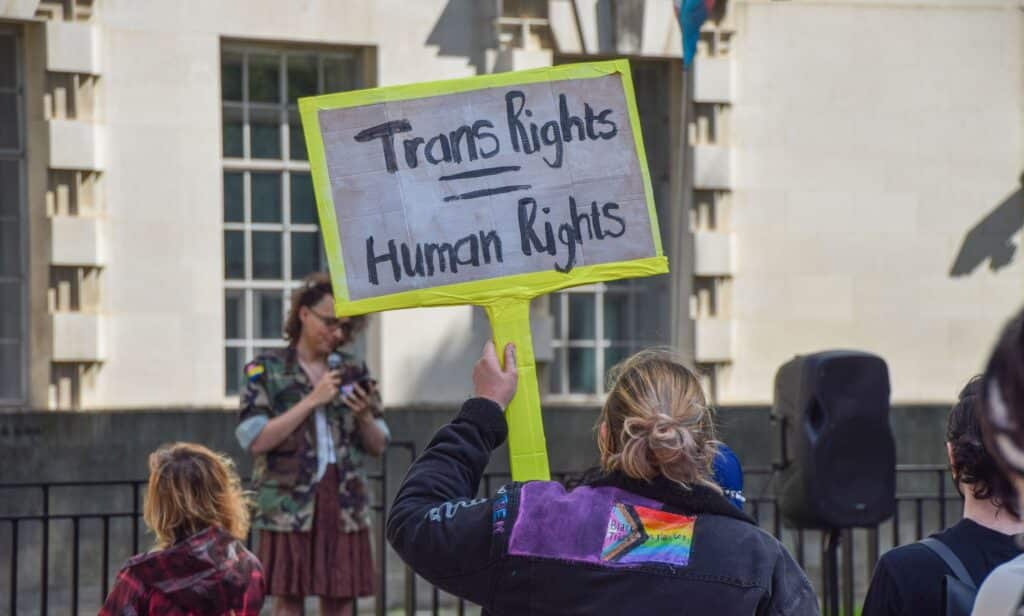Court rules trans people with gender dysphoria covered by discrimination law in ‘huge win’

The US Court of Appeal ruled trans people who experience gender dysphoria are protected under the Americans With Disabilities Act. (Mark Kerrison/In Pictures via Getty)
Trans people who experience gender dysphoria are protected under the Americans with Disabilities Act (ADA), a federal court has ruled.
A three-judge panel from the US Court of Appeals for the Fourth Circuit ruled there was “no legitimate reason why Congress would intend to exclude” trans people who experience gender dysphoria from the ADA’s protections.
The ADA, which was adopted in 1990, specifies that its interpretation of disability excludes “gender identity disorders not resulting from physical impairments” as well as “transvestism” and “transsexualism” – the three terms being vastly outdated.
The Court of Appeal ruled gender dysphoria is not a gender identity disorder, noting the text of the ADA doesn’t “define the term ‘gender identity disorders’ and does not mention gender dysphoria at all”. As such, the court said nothing in the act concluded that “gender dysphoria constitutes a ‘gender identity disorder’ excluded from ADA protections”.
Judge Diana Gribbon Motz wrote in the ruling that there has been a “shift in medical understanding” about gender dysphoria since 1990.
Motz said multiple courts held that a diagnosis of gender dysphoria, “unlike that of a ‘gender identity disorder’, concerns itself primarily with distress and other disabling symptoms, rather than simply being transgender”.
“We have little trouble concluding that a law excluding from ADA protection both gender identity disorders, and gender dysphoria, would discriminate against transgender people as a class, implicating the Equal Protection Clause of the Fourteenth Amendment,” the ruling said.

A US Court of Appeal judge said there’s “shift in medical understanding” about gender dysphoria since the ADA was implemented in 1990. (SOPA Images/LightRocket via Getty/Hesther Ng)
Trans woman brought case after being jailed in men’s prison
The ruling stems from a lawsuit filed on behalf of Kesha Williams, a trans woman with gender dysphoria who was incarcerated in Virginia’s Fairfax County Adult Detention Center in November 2018.
Williams was initially assigned to women’s housing but was moved to men’s housing after prison deputies learned she was trans.
While held in the men’s facility, Williams “experienced delays in medical treatment for her gender dysphoria, harassment by other inmates, and persistent and intentional misgendering and harassment by prison deputies”.
Williams detailed in an interview how she “didn’t feel safe” and male inmates would “watch [her] shower from the balcony”, the Washington Post reported.
She contacted a lawyer about her situation before her six months in jail ended, saying she feared for other trans people held in the Virginia jail.
“The next girl could really want to hurt herself, could kill herself,” she said.
A district court initially dismissed Williams’ case based on the ADA’s exclusion of “gender identity disorders” from protection under the law.
She appealed the ruling as she argued gender dysphoria is “categorically” not a “gender identity disorder” and – even if it was – it results from a “physical basis that places it outside the scope of exclusion from the ADA protection”.
The American Psychiatric Association (APA) removed “gender identity disorder” from a 2013 update of its Diagnostic and Statistical Manual of Mental Disorders. The APA replaced it with gender dysphoria – a diagnosis that didn’t exist within the mental health or medical community in 1990 when the ADA was adopted.

LGBTQ+ legal advocates hailed the Court of Appeal ruling as a “huge win” for the trans community. (SOPA Images/LightRocket via Getty/Vuk Valcic)
Jennifer Levi, GLAD Transgender Rights Project director, described the court ruling as a “huge win” as there is no “principled reason to exclude transgender people from our federal civil rights laws”.
“It’s incredibly significant for a federal appeals court to affirm that the protections in our federal disability rights laws extend to transgender people,” Levi said.
Levi continued: “This opinion goes a long way toward removing social and cultural barriers that keep people with treatable, but misunderstood, medical conditions from being able to thrive.”
Joshua Block, staff attorney at the ACLU’s LGBTQ & HIV Project, said the effort to exclude trans people from their “rightful protections under the ADA was always baseless and discriminatory”.
“Transgender people are denied a multitude of reasonable rights and accommodations, particularly while incarcerated, and today’s ruling is a step forward for their fairness and equality,” Block added.

